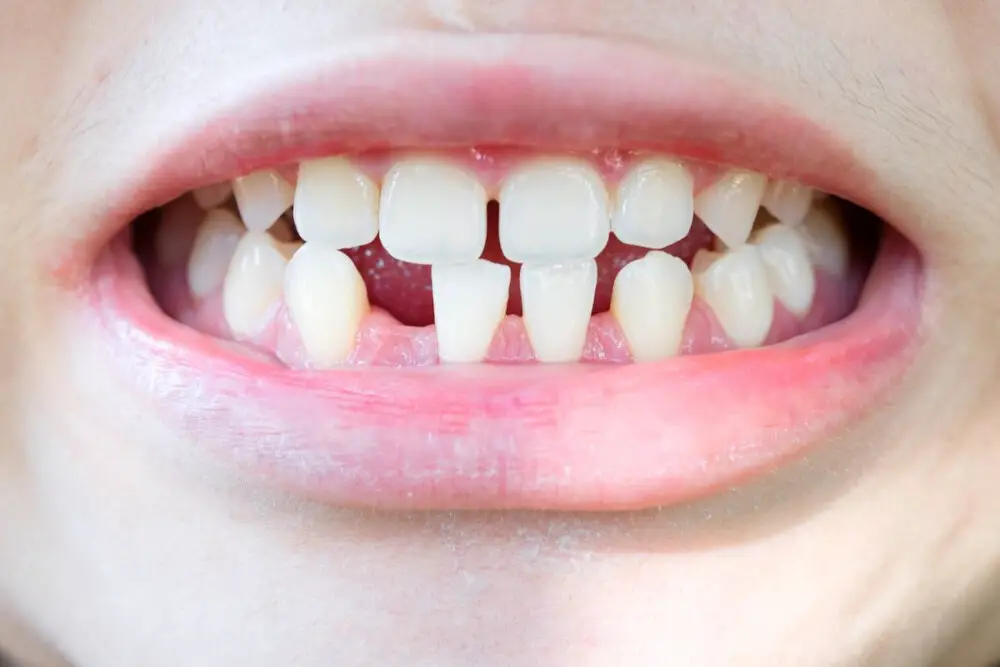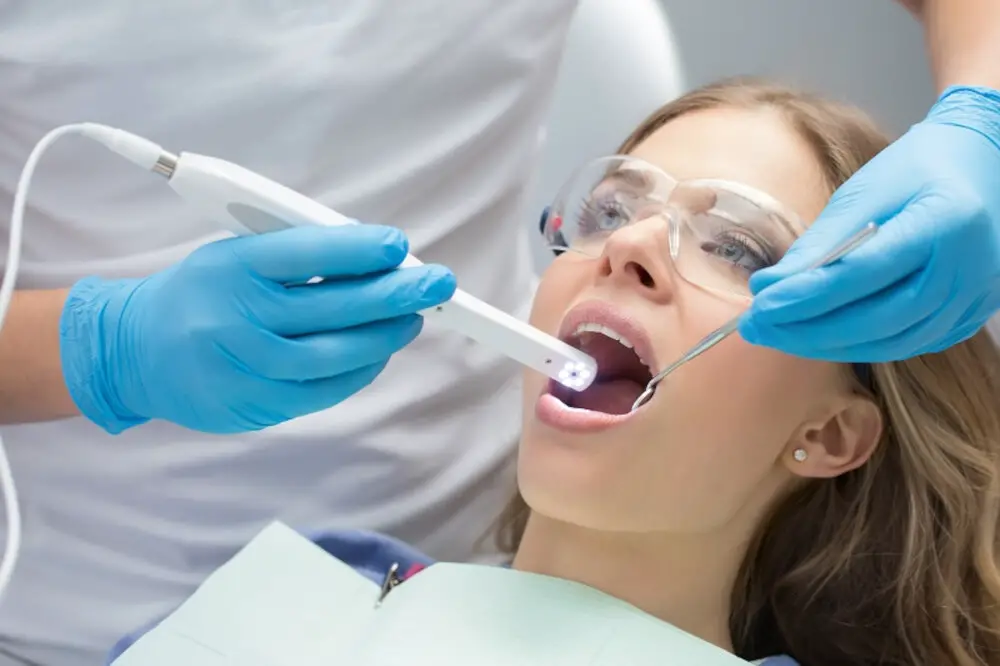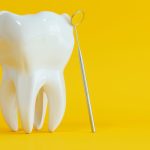Why Your Gums Itch Between Teeth: Causes and Remedies

Are you experiencing an uncomfortable sensation in your gums between your teeth that just won’t go away? Itching and discomfort in that area can be very frustrating and can affect your daily routine. However, you are not alone in this experience. Many people have struggled with the same issue, and it can be caused by a variety of factors. The itching sensation between your teeth is commonly caused by the buildup of plaque and tartar. This buildup can lead to gum disease, which can cause your gums to become inflamed and irritated. Other factors that can contribute to itching gums include poor oral hygiene, allergies, and even stress. Fortunately, there are several remedies that can help alleviate the discomfort and prevent the issue from recurring.
Itchy gums between teeth can be a common problem that can cause a lot of discomfort and frustration. This condition can be caused by a variety of factors, including poor oral hygiene, gum disease, allergies, hormonal changes, or even stress. When you fail to clean your teeth properly, plaque can accumulate and lead to inflammation of the gums. As a result, your gums may become itchy and bleed when you brush or floss. Similarly, gum disease can also cause itching and sensitivity, which may worsen over time if left untreated. Allergic reactions to certain foods or medications can also trigger gum itchiness, along with hormonal changes during pregnancy or menopause. Fortunately, there are several remedies that can help alleviate itchy gums, ranging from practicing good oral hygiene, using a saltwater rinse, or seeking professional dental care.
Identifying the causes and finding remedies for any health issue is of utmost importance to ensure a healthy and comfortable life. When it comes to oral health, such identification and remedy become even more critical. In the case of itchy gums between teeth, identifying the root cause can help prevent further damage to the gums and teeth, and finding the right remedy can alleviate the discomfort. Neglecting the itchy gums can lead to severe dental problems, including gum disease and tooth loss. Hence, it is crucial to identify the root cause, whether it is poor oral hygiene, gum disease, or any other underlying medical condition, and finding the right remedy, such as using a medicated mouthwash or changing one’s brushing techniques, to prevent further damage and maintain good oral health.
Poor Oral Hygiene

Poor oral hygiene is a common cause of itchy gums between teeth. When we fail to take proper care of our teeth and gums, harmful bacteria builds up in the mouth. This bacteria can cause inflammation and irritation of the gums, leading to itchiness and discomfort. Brushing twice a day, flossing regularly, and using mouthwash can help eliminate harmful bacteria and prevent the development of itchy gums. Additionally, consuming a balanced diet and avoiding sugary foods and drinks can also help maintain good oral hygiene. If left untreated, poor oral hygiene can lead to more serious conditions such as gum disease. Gum disease occurs when the gums become infected and inflamed, causing them to pull away from the teeth and form pockets that can harbor harmful bacteria. In addition to itchiness, gum disease can cause symptoms such as bleeding, swelling, and even tooth loss. Treatment for gum disease typically involves a deep cleaning procedure called scaling and root planing, as well as antibiotics to eliminate the infection. To prevent gum disease and other oral health issues, it is important to practice good oral hygiene habits and visit a dentist regularly for check-ups and cleanings.
Poor oral hygiene can lead to itchy gums between teeth due to the accumulation of plaque and bacteria. When food particles and bacteria are not removed properly by brushing and flossing, they can form a sticky film called plaque that sticks to the teeth and gums. Over time, the plaque can harden and turn into tartar, which can irritate the gums and cause inflammation. As the gums become inflamed, they may start to itch and feel uncomfortable, especially in the areas between teeth where it is difficult to clean properly. If left untreated, the inflammation can progress to gingivitis and eventually periodontitis, leading to more serious oral health problems. Proper oral hygiene, including regular brushing, flossing, and dental cleanings, is essential to prevent the buildup of plaque and maintain healthy gums.
Maintaining good oral hygiene is crucial to keep your teeth and gums healthy. To ensure proper oral hygiene, you should brush your teeth twice a day, floss daily, and rinse your mouth with an antibacterial mouthwash. You should also avoid smoking and limit your intake of sugary and acidic foods and drinks. Regular dental check-ups and cleanings can also help prevent gum disease and other oral health problems. Remember, taking care of your oral health is not just about having a bright smile, but it also plays a vital role in your overall health and well-being.
Gum Disease

Gum disease, also known as periodontitis, is a common dental problem that affects millions of people worldwide. It is caused by the buildup of plaque, a sticky film of bacteria that forms on the teeth and gums. If left untreated, gum disease can lead to tooth loss and other serious health problems. Symptoms of gum disease include red, swollen, and bleeding gums, bad breath, and receding gums. If you are experiencing any of these symptoms, it is important to see a dentist as soon as possible to prevent further damage to your teeth and gums. There are several remedies for gum disease, including regular brushing and flossing, using an antibacterial mouthwash, and seeing a dentist for professional cleanings and treatments. Additionally, eating a healthy diet rich in fruits and vegetables can help improve the health of your gums. If you are a smoker, quitting smoking can also improve your gum health and reduce your risk of developing gum disease. By taking care of your teeth and gums and seeking professional help when needed, you can prevent and treat gum disease and maintain a healthy smile for years to come.
Gum disease, also known as periodontal disease, is a bacterial infection that affects the tissues and bones surrounding teeth. It typically develops due to poor oral hygiene habits, such as infrequent brushing and flossing, and can cause a range of symptoms, including itchy gums between teeth. This symptom is often a sign that the gums are inflamed and irritated, which can be caused by the buildup of plaque and bacteria in the area. As the infection progresses, it can lead to more severe symptoms, such as bleeding gums, bad breath, and even tooth loss. Treatment for gum disease typically involves professional cleaning and improved oral hygiene practices to prevent further damage to the gums and teeth.
Gum disease, also known as periodontal disease, is a common condition that affects many people. One of the most common symptoms of gum disease is itching and irritation between teeth. Other symptoms may include bleeding gums, swollen gums, bad breath, and loose teeth. If left untreated, gum disease can lead to more serious problems such as tooth loss and bone damage. Treatment for gum disease typically involves a deep cleaning procedure called scaling and root planing. In more severe cases, surgery may be necessary to remove infected tissue and repair damage to the gums and bone. It’s important to see a dentist or periodontist if you are experiencing any symptoms of gum disease to prevent further complications.
Allergies

Allergies are an overreaction of the immune system to a substance that is normally harmless. There are numerous types of allergies, including food allergies, seasonal allergies, and skin allergies. Many people suffer from allergies, and the symptoms can range from mild to severe. Allergies can cause a variety of symptoms, including itching, swelling, and difficulty breathing. Some people may experience a rash or hives, while others may experience gastrointestinal symptoms such as nausea and vomiting. It is important to identify the allergen that is causing the symptoms in order to avoid exposure to it in the future. Treatment for allergies may include medications, such as antihistamines or corticosteroids, or allergy shots. When it comes to dental health, allergies can have an impact on the gums and teeth. Allergies can cause itching and inflammation of the gums, which can be uncomfortable and irritating. Some people may also experience swelling of the gums or tongue, which can make it difficult to speak or eat. In addition, allergies can cause dry mouth, which can increase the risk of cavities and gum disease. It is important to talk to your dentist about any allergies you may have, and to take steps to manage your symptoms in order to maintain good oral health. This may include using an antihistamine or allergy medication, or avoiding certain foods or substances that trigger your allergies. With proper care and management, it is possible to maintain good dental health even if you suffer from allergies.
Allergies can be one of the causes of itchy gums between teeth. When we come in contact with an allergen, our immune system produces histamine, triggering an inflammatory response. This can cause the gums to become inflamed and itchy. Additionally, certain foods or drinks may contain allergens that can cause this reaction in some people. It is important to identify the allergen and avoid it to prevent further discomfort. In severe cases, antihistamines or allergy shots may be necessary to alleviate the symptoms.
There are a variety of common allergens that can trigger itchiness in the gums between the teeth. One of the most common culprits is pollen, which can easily get trapped in the teeth and gums and cause a range of uncomfortable symptoms. Other allergens that may cause itching include dust mites, pet dander, and certain foods. Additionally, some people may be allergic to certain dental products, such as toothpaste or mouthwash, which can cause irritation and itching. If you suspect an allergy is causing your gum itchiness, it’s important to speak with a healthcare professional to identify the specific allergen and develop an appropriate treatment plan.
Allergies can be a nuisance and cause discomfort, but fortunately, there are remedies available to alleviate the symptoms. One common remedy is taking antihistamines, which work by blocking histamine receptors in the body. Nasal sprays and eye drops can also be effective in reducing allergy symptoms. Additionally, avoiding allergens is crucial in preventing allergic reactions. This can be done by staying indoors during high pollen counts, wearing protective clothing when outdoors, and using air purifiers in the home. Maintaining good oral hygiene by brushing and flossing regularly can also help prevent gum irritation and itching between teeth. By taking preventative measures and seeking appropriate remedies, individuals can manage their allergies and enjoy a comfortable, itch-free life.
Other Causes

Other Causes of gum itching between teeth may include allergies to certain foods, medications, or dental products. Some people may experience an allergic reaction to the ingredients found in toothpaste, mouthwash, or dental floss. This can lead to gum itching, redness, and swelling. If you suspect that you are allergic to a particular dental product, it is important to stop using it immediately and consult with your dentist for alternative options. Additionally, poor oral hygiene can also contribute to gum itching between teeth. When plaque and bacteria build up between teeth, it can cause inflammation and irritation, leading to itching and discomfort. Maintaining proper oral hygiene habits, such as brushing twice a day, flossing daily, and visiting your dentist regularly, can help prevent gum itching and other oral health issues. In some cases, gum itching between teeth may also be a symptom of an underlying medical condition such as diabetes or an autoimmune disorder. These conditions can affect the gums and cause inflammation and itching. If you experience gum itching along with other symptoms such as dry mouth, frequent urination, or fatigue, it is important to speak with your healthcare provider to rule out any underlying medical conditions. Overall, gum itching between teeth can be caused by a variety of factors, and it is important to identify the root cause in order to properly treat and prevent it. By maintaining good oral hygiene habits, avoiding allergens, and addressing any underlying medical conditions, you can keep your gums healthy and itch-free.
Apart from poor oral hygiene, there are several other potential causes of itchy gums between teeth. Hormonal changes, particularly during pregnancy or menopause, can cause inflammation and sensitivity in the gums. Certain medications, such as antihistamines and antidepressants, can also dry out the mouth and cause itching. Nutritional deficiencies, particularly in vitamin C and iron, can weaken the immune system and make gums more susceptible to irritation. It is important to consult with a dentist or healthcare provider to determine the underlying cause of itchy gums and develop an appropriate treatment plan.
There are several causes of itchy gums between teeth, and identifying the underlying cause is crucial for effective treatment. Poor dental hygiene, gum disease, and oral infections are some common causes of itchy gums. However, allergies, stress, and hormonal changes may also trigger gum itching. To treat itchy gums, individuals must maintain good oral hygiene by brushing twice a day, flossing regularly, and using mouthwash. If the cause is gum disease or infection, a visit to the dentist is necessary for proper treatment. In cases of allergies or hormonal changes, medication or lifestyle changes may be necessary to alleviate symptoms. Overall, identifying the cause and taking appropriate measures is essential for relieving itchy gums and maintaining good oral health.
Itchy gums between teeth can be quite uncomfortable and even painful. The main causes of itchy gums include poor oral hygiene, gum disease, allergies, hormonal changes, and certain medications. To remedy itchy gums, maintaining proper oral hygiene, such as brushing and flossing regularly, is crucial. Using mouthwash and avoiding certain foods can also help alleviate symptoms. For more severe cases, visiting a dentist or doctor may be necessary to treat underlying conditions like gum disease or allergies. Additionally, taking steps to reduce stress and maintaining a healthy diet can also help improve overall oral health and prevent future gum discomfort.
If you’re experiencing persistent itching or discomfort in your gums between your teeth, it’s important to seek professional dental advice. While there are various potential causes and remedies for this issue, it’s crucial to get an accurate diagnosis from a qualified dental professional to ensure that you’re treating the root of the problem rather than just the symptoms. Ignoring persistent symptoms could lead to more serious dental issues down the line, such as gum disease or tooth decay. By seeking professional dental advice, you can get the treatment you need to alleviate discomfort and protect your oral health in the long run.
Maintaining good oral hygiene is crucial to prevent itchy gums between teeth and other oral health problems. Brushing your teeth twice daily with fluoride toothpaste, flossing regularly and using an alcohol-free mouthwash can help remove plaque and bacteria that can cause gum irritation. Eating a healthy diet that includes plenty of fruits and vegetables, avoiding sugary and acidic foods and drinks, and drinking plenty of water can also help keep your gums healthy. Regular dental check-ups and cleanings can detect and treat any early signs of gum disease or other oral health issues before they become more serious. Overall, taking good care of your oral health can help prevent itchy gums between teeth and promote a healthy, happy smile.
Conclusion

In conclusion, an itchy sensation in the gums between teeth can be caused by a number of factors, including poor oral hygiene, gum disease, allergies, or even stress. It is important to identify the root cause of the itching to determine the appropriate remedy. Some remedies include proper brushing and flossing techniques, using a mouthwash, and avoiding certain foods or products that may cause an allergic reaction. Seeking professional dental care is also recommended for persistent or severe itching. By taking care of our oral health and addressing any discomfort promptly, we can prevent further complications and maintain a healthy, happy smile.






